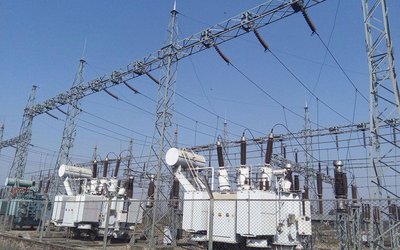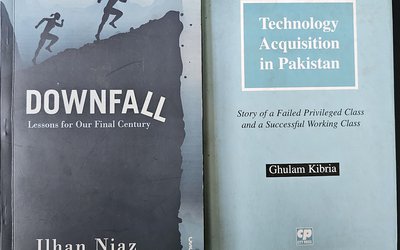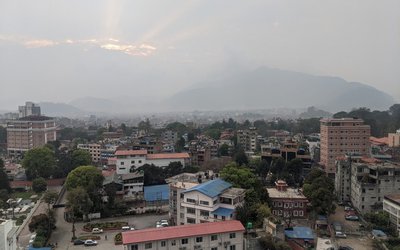However paradoxical it may sound, people of this Himalayan country do not get water to drink and fresh air to breath due to pathetic supply management, ever increasing population and high level of pollution in urban areas. Deficiencies on this front, however, are outweighed by controversies and disputes whose incessant creation and supply by political leaders has always outstripped its demand in this country gasping to breathe fresh air of economic growth and political stability. The row between the judiciary and parliament following alleged controversial recommendation by Judicial Council (JC) of eight nominees for Supreme Court justices is attaining new heights with the passage of time. Recent decision of the Parliamentary Hearing Special Committee (PHSC) to summon members of JC to clarify their recommendation has further infuriated the judiciary, which feels that such a move by the parliamentary body is a clear sign of encroachment upon their territory by the legislature.JC’s decision not to let any of its member appear before PHSC has received solid support by the Supreme Court’s verdict that it is illegal to ask JC members to appear before the committee. Series of controversial decisions made by authorities representing different agencies have created an unpleasant situation where the two bodies, judiciary and legislature, are at loggerheads and it is difficult to say how long the two bodies will take to unlock their horns. Very unfortunately, the case has been politicized and its resolution is possible only when three major political parties, currently differing on the issue, reach an understanding on the recommendation of JC.PM Koirala seems disturbed and concerned and is reported to be holding discussions with leaders of different parties over controversy surrounding the JC recommendation.UML stalwarts are mounting pressure on the leadership for correction of the recommendation. Some signs of uneasiness can also be seen between the apex court and the government/political parties especially after the court’s verdict that directed the government to give CA full shape filling twenty-six vacant positions within fifteen days. The Supreme Court also directed the government to ensure that those who contested the CA elections held in November or were nominees under the Proportional Representation category are excluded. Although this verdict was music to the ears of many who were irritated with the slow moving style of the current dispensation, the government and political parties find this kind of direct instruction of the court on very party- specific issues little bit untenable. It may also be noted that the coalition government is constantly criticized for not filling the important position lying vacant since long.PM Koirala took the initiative of giving National Planning Commission a vice chairman, which also invited lots of criticism. It was even said that political parties were finding it hard to send notable persons to work as members at NPC under the leadership of a person widely publicized as lacking experience and appropriate qualification to lead that prestigious body. Thanks god the parties found seven people to fill the allotted quota. Hope the Commission that has taken a full shape just couple of weeks before the budget is said to be made public succeeds in making some contribution to achieving meaningful growth.
Our leaders may kindly note that people in India in the recent polls voted for change to have growth and prosperity, which they thought Narendra Modi, BJP prime ministerial nominee, could give because Gujarat under him had on average 10 percent growth in the past couple of years. For the first time in years people have given a decisive mandate and Modi is in a position to claim credit for it. It may be mentioned that Rajeev Gandhi-led Congress got absolute majority in 1984. People were convinced that country and the economy was mismanaged during the past ten years. What Modi did for Gujarat was the factor that led BJP towards landslide victory because people knew that his was the politics of performance. It is seen that even people of areas where BJP has not performed well electorally are keen to see him at the helm of affairs in Delhi in the hope that his assumption of power at the center will benefit India economically. Let us hope Modi measures up to the expectation of people of India.
Because BJP has been voted to power in a spectacular manner based on wonderful performance of Modi in Gujarat, it is very likely that he will not do anything to disturb India’s economic relations even with its rivals, let alone Nepal which has deep rooted economic and cultural ties with India. Bilateral trade between the two economic giants, China and India, is bound to grow, despite it slacking a bit last year (64 billion dollar). They will continue to have major differences on issues such as border problems but direct confrontation of a military nature is unthinkable at a time when economic considerations are bound to take precedence over political matters because Modi knows what he has done for Gujarat has now to be done for the entire nation. With world economic powers such as US and EU, India will continue to cooperate and compete whenever there is a need to do so. Despite speculation in some quarters, Modi is not likely to have a hawkish attitude towards Pakistan. Nepal can benefit from his pro development attitude and get much needed capital and technology on easy terms for creation of physical infrastructure and judicious utilization of abundant water resources of this country. As far as utilization of water resources of Nepal in cooperation with India for their joint benefit in the past is concerned, people often talk of Nepal being cheated in projects like Sarada barrage (British India), Koshi, Gandaki and more lately Mahakali.This, however, should not mean that we should not get into any kind of negotiation with India for harnessing water resources of Nepal. Learning from the mistake committed in the past, let us leave no stone unturned to protect the interest of this upstream country in a meaningful way. There is no disagreement with the logic that Nepal needs lots of water for drinking purpose because as of now only one-fourth of our population has access to very erratic supply of piped water, there is a need to substitute fuel wood from kitchens in rural areas, electrification of transportation is necessary to help cut ever increasing import of petroleum products, power outage hours have to be reduces and people all over Nepal need to have access to electricity but one should also not fail to understand that lots of time and even huge subsidy may be required to achieve these novel ideas over a fairly long period of time.Let us get some projects executed and work along the line of displacing firewood and cooking gas from our kitchens and electrification of our transportation system without waiting for someone to perform miracles to see these happen overnight. It would be a crime to focus only on export oriented projects keeping Nepalese at home in dark but creating unnecessary noise to obstruct implementation of power projects is also an unforgivable crime. Experienced people in know of unfair treatment meted out to Nepal in the past should be made a party to the bilateral negotiations on water use and the people chosen should be prepared to sit around the table for talks, which in most cases are tough. Let us hope Koirala, still believed to have a credible image, despite being under a mound of controversy after more than three months in office, succeeds in maintaining very good relationship with the man chosen to lead the world’s largest democracy who has also promised to make development a mass agenda.

Dr. Tilak Rawal
Dr. Rawal is former governor of NRB.
- Prachanda Outsmarts Again
- Apr 14, 2024
- Prachanda Completes One Year
- Jan 26, 2024
- Terrible Times To Continue
- Oct 12, 2023
- Budgets Of Nepal
- Jun 09, 2023
- Moves And Counter Moves
- Feb 27, 2023
















